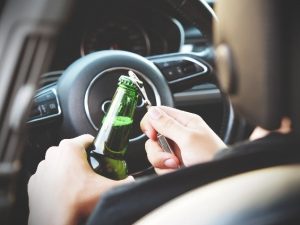What to Do if You’re Charged with a DUI

What is a DUI?
A DUI stands for Driving under the Influence. The legal limit for blood alcohol content (BAC) level in the United States is 0.08%. This is equivalent to have 4-5 standard servings of drinks. A standard serving would be a 15 fl oz beer, 5 fl oz of wine, 8-9 fl oz of malt liquor, and a 1.5 fl oz of a distilled spirit. BAC can vary between people depending on their gender and weight. Skinnier people can get drunk faster compared to an overweight individual. It takes less alcohol for a woman to reach 0.08% compared to men.
Should I get a DUI lawyer?
The moment you are arrested for a DUI offense you should be planning on contacting a lawyer. A lot of lawyers offer free consultations so you can discuss your case with them. You should use this time to ask any questions you may have. You would want to see if they are a good fit for you. Make sure that your criminal defense attorney has handled DUI cases and ask if they have handled cases similar to yours. Some cases might have aggravating factors that can lead to harsher penalties.
Can a DUI lead to a felony?
A DUI is a misdemeanor offense but can turn into a felony. There are different reasons for a DUI turning into a felony. If someone receives serious injuries as a result of a DUI accident, then it is a third-degree felony. For vehicular manslaughter is involved, it is a second-degree felony. It will be a first-degree if the crash was avoidable but you didn’t avoid it or refused to provide information on whether it was avoidable. Repeat offenders can receive a felony charge after three convictions.
How can a lawyer help me?
There are a few things that an attorney can do to help you get your charges dismissed or get less harsh penalties.
- Help obtain a hardship license: A lawyer increases your chance of obtaining a hardship license. (Scroll down to learn more about hardship licenses).
- Save your license: They can negotiate to not get your license suspended or revoked.
- Negotiate: A negotiation can happen that can lead to no jail time or a lesser prison sentence.
- Illegal police activity: There are specific procedures that need to be performed when it comes to making an arrest. If the steps aren’t properly taken, then it would mean there was an illegal arrest which can lead to a dismissal.
Public defender vs. private attorney
A public defender is an attorney that is appointed by the courts and will be of no cost to the defendant. Public defenders are typically overworked, having to take on multiple cases at once. Due to this, it is hard to get in touch with them. In most cases, you wouldn’t be able to talk to your defender until the hearing. When you hire a private attorney, they are there to serve you. They will take time to investigate your case and negotiate a favorable outcome. If they aren’t available, then their partners or paralegal will be able to assist you. Private attorneys also have a smaller case load compared to public defenders.
How much does a DUI lawyer cost?
The cost of a DUI attorney will depend on the lawyer you hire. On average, you’re looking at paying a few thousand dollars. The cost goes to their research, investigation, and any outside communicated needed. Some lawyers may charge a flat fee for what they estimate will be the amount of time they’ll spend on your case.
How long do the DUI proceedings take?
Most cases are handled before they reach a court hearing. Negotiations are made or a dismissal is requested. If the case goes to trial, then it will last between 2 – 5 days.
Can a DUI lawyer expunge it from my record?
It is nearly impossible to get a DUI expunged from your record. Some states have a set time frame for you to have a clean criminal record in order to be eligible. The time frame can be anywhere between 3 and 10 years.
How common are DUI accidents?
According to the National Highway Traffic Safety Administration, 30 people die a day from a DUI crashes. That’s approximately more than 10,000 people a year that will lose their lives to drunk driving. For some states, the rates for drink driving accidents are significantly high. In Florida, according to the Florida Department of Highway Safety and Motor Vehicles, there were 5,125 alcohol related crashes recorded in 2017. Drunk driving is one of the second top causes for car accidents in Florida; the first is speeding.
Penalties for a DUI conviction
There are multiple factors that can determine what penalties an individual may receive upon conviction. Factors can include BAC level, did they refuse a breathalyzer, or damages caused to a person or property. For a first-time offender, the individual may have to pay a fine between $500 – $2,000. They can also go to jail for up to six months and face possible probation. For a second conviction, the fine increases to $1,000 – $4,000. The jail sentence increases to up to nine months with a possible probation period. The offender might also have to complete a substance abuse courses.
For a misdemeanor DUI offense, your license can also be suspended. If you refuse to take a breathalyzer test, then your license can be suspended for up to one year. For a repeat offender, then you risk the possibility of your license being revoked.
What are some factors that can lead to harsher penalties?
 There are some factors that can lead to you having higher fines or possible prison time. If you had a BAC level of 0.15 or more, that could double your fines. A fine for a first conviction can go up to $2,000 compared to the max $1,000 for a regular conviction. If a person or unborn child is killed as a result of a DUI related accident, you can be charged for vehicular manslaughter.
There are some factors that can lead to you having higher fines or possible prison time. If you had a BAC level of 0.15 or more, that could double your fines. A fine for a first conviction can go up to $2,000 compared to the max $1,000 for a regular conviction. If a person or unborn child is killed as a result of a DUI related accident, you can be charged for vehicular manslaughter.
This offense has a minimum of four years prison sentence. Serious injuries or property damage can also lead to a possible prison sentence.
Can my insurance get affected from a DUI conviction?
Florida and Virginia are the only two states in the US that have an FR-44 form. This form allows insurance companies to significantly raise your insurance rate if you have a DUI conviction. For the next five years, your insurance is allowed to increase your rates. This can also prevent you from trying to get another insurance because the conviction is on your record. Some insurance companies will have you pay a higher rate if you don’t have a clean driving record.
What is a hardship license?
A hardship license is a temporary restrictive license. This license allows someone with a suspended license to drive their car with set restrictions. They can only drive to destinations that support their livelihood. Examples of destinations are their job or school.
What do I need to qualify for a hardship license?
To qualify for a hardship license, you would need to have a suspended license. The reason for the license suspension would determine if you qualify for a hardship license. Hardship licenses are mostly given to first time DUI offenders. You would need to provide proof that you need to drive to specific destinations in order to maintain your livelihood. For example, proof of enrollment in school or that you have a job. To increase your chances of receiving a hardship license, you should hire a DUI attorney.
How do I obtain one?
The requirements for a hardship license differ depending on the state where you live. In Florida, you would need to enroll into a 12-hour Florida ADI course. In Georgia, you have to enroll in drivers ed and behind-the-wheel instruction and practice. When you get all of the required documents and certificates, you must wait for approval. There might be a hearing or you may receive your license at the DMV. The best way to find out the steps to get your hardship license is to look up the rules for your state.
How much does a hardship license cost?
Depending on the state you live in, the costs may vary. Each state has their own requirements for you to complete before obtaining a hardship license. There might be courses you have to pay for and receive certificates of completion. On top of that you have to pay for the application fee, court fees, and processing fees. You also have to pay for the reinstatement of your license if it was suspended or revoked. To get accurate prices, look up hardship licenses for your state.

What is the Ignition Interlock Program?
The Ignition Interlock Program (IIP) is a program that prevents you from using your vehicle if you are intoxicated. It is a breathalyzer device inserted into the ignition of your car. You have to perform a breathalyzer test every time you want to operate your vehicle.
After the second conviction, you run the risk of being enrolled into the program. Any vehicles that you own will have to have the device installed in the ignition.
Cost of ignition interlock device (IID)
If you are convicted and are ordered to enroll in the program, you must purchase the device. Depending on the type of vehicle you own and where you go to get the device the price may vary. Along with the initial purchase, you must pay a monthly fee and a removal fee. Installation can cost between $50 – $150. Monthly fees can be $50 – $150 and cover leasing, monitoring, and maintenance. The removal fee can be between $50 – $150.
Can I trick the IID or try removing it?
Signs of tampering of the IID or evidence of using another person to turn on the car can lead to serious penalties. The device can send an alert to the authorities to alert of possible tampering. Offenders can receive criminal charges or lose all driving privileges.
Conclusion
The legal issues involved in a DUI are complex and time-consuming. Most people do not have the time or knowledge to successfully navigate the legal system, much less do so in a way that gets them the most favorable result.
If you’ve been charged with a DUI, it is a good idea to hire a DUI lawyer (at a private practice if you can afford it). While the cost may be high, you stand a much better chance of avoiding other costs (both financial and personal) down the line with a lawyer on your side.
